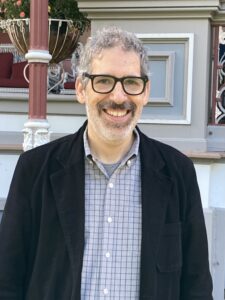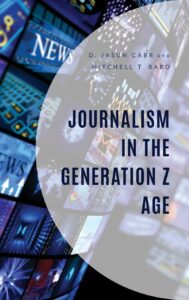
Generation Z is characterized by their status as social media natives. Yet, objective journalism is still important to them, according to Mitchell Bard (M.A., Ph.D.’15) and Jasun Carr (Ph.D.’12), who co-authored the new book “Journalism in the Generation Z Age.”
Bard and Carr are both UW–Madison Ph.D. graduates. Both of them are associate professors at universities, Bard at Iona University and Carr at Idaho State University.
Bard’s inspiration for pursuing this subject came from those around him. “It was something about social media, that I immediately thought ‘Wow, this is not just a normal development, this is an entirely new paradigm.’ It has blown apart the model that has provided journalism for this country for almost 200 years,” Bard said.

Inspired by this change, Bard reached out to Carr, his former colleague from the J-School’s Mass Communication Research Center. Following several published studies on Gen Z and media, they published their book in December.
“I was surprised by the major findings in our first study, which was that how the idea of journalism and the idea of objectivity still was important to Gen Z, even though they did not write or read or watch the traditional forms of journalism,” Bard said.
Contrary to the reputation that Gen Z gets for ignoring news and focusing on social media, this finding demonstrates the continuing value of journalism. Bard and Carr’s book can help readers understand what the next generation really wants to see.
 “We do focus on the negative a lot of the time. We focus on these big overarching concerns about where the world is headed, what people are doing, how social media is impacting journalism,” Carr said.
“We do focus on the negative a lot of the time. We focus on these big overarching concerns about where the world is headed, what people are doing, how social media is impacting journalism,” Carr said.
Instead of making assumptions based on rhetoric or partisan leanings, Carr said he wanted to focus on the facts with this book.
Bard envisions this book as a contribution to preserving democracy. “Enough of us are willing to listen to the facts reported by objective journalists,” Bard said, “I want it to be one of the voices in this conversation that gets listened to and maybe inspires another researcher.”
Carr echoed this sentiment. “[Gen Z] think[s] differently, you behave differently. You interact with social media differently and it’s important that we focus on that,” Carr said.
Grateful for their formative experiences at the J-School, Bard and Carr dedicated their book to the faculty, acknowledging the pivotal role played by the school in shaping their futures.